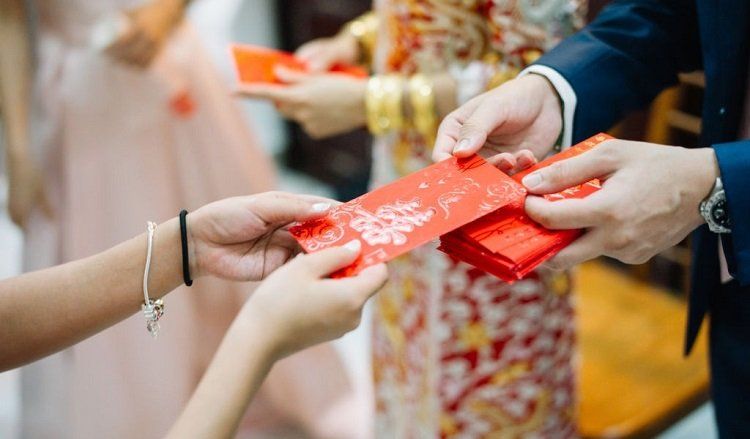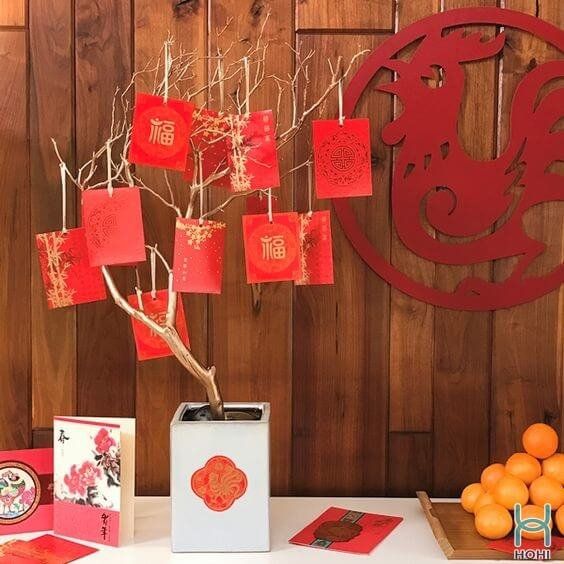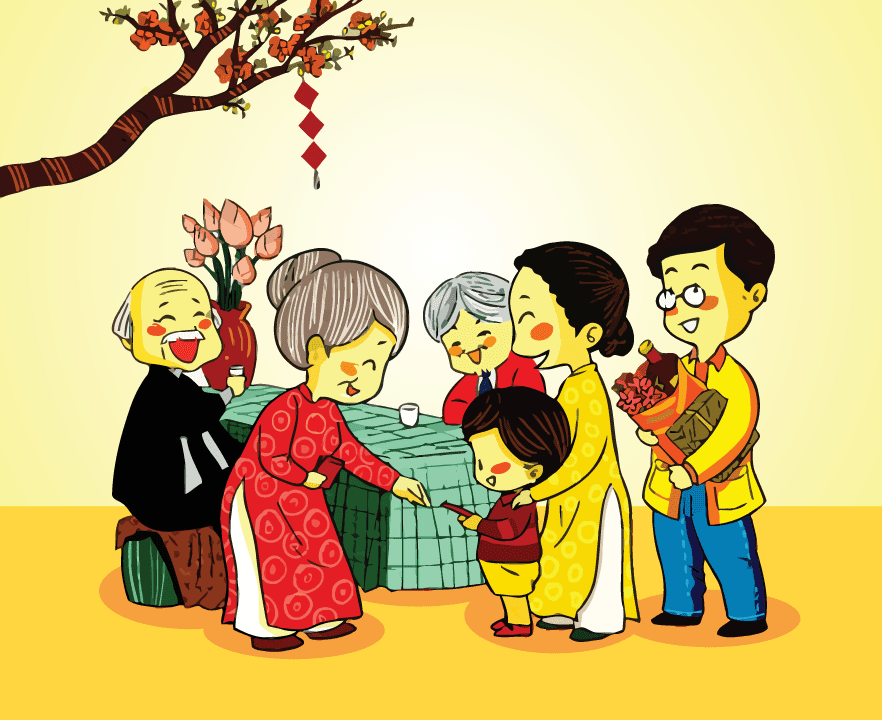Lì Xì – Giving Luck at the Start of the Year, Receiving a Year Full of Happiness
Lunar New Year (Tết Nguyên Đán) is a time of blooming peach blossoms, New Year greetings, and, most importantly, the Lì Xì tradition. Every Tết, Vietnamese families – especially the elders – give lì xì to children, relatives, and friends to wish them luck, health, and prosperity in the coming year. But have you ever wondered why it’s called “lì xì”? Lì xì is more than just a red envelope with money; it’s a gift of luck, a token of love, and a wish for success, health, and happiness for the recipient.

When you hand over that red envelope or open it to find crisp bills inside, it’s not just about the money – it’s about the good fortune and well-wishes that come with it. Every time you open a lì xì envelope, it marks the beginning of a new year full of hope.
The Deep Meaning of Lì Xì – It’s More Than Just Money
While lì xì is a gift of money, each red envelope is filled with much deeper meaning in Vietnamese culture. The practice isn’t just about money—it’s about connecting people, families, and generations.

Luck and prosperity: Lì xì isn’t just a gift; it’s a way to bring good luck and abundance to those who receive it. Elders hope that the children who receive lì xì will grow up healthy, wise, and successful in their studies and lives. The money symbolizes their hopes for the recipient’s future.
Respect and love: Lì xì also expresses respect from younger generations to the older ones. When grandparents or parents receive lì xì from their children or grandchildren, it’s a way of showing gratitude and appreciation for their care and guidance.
Family togetherness: Lunar New Year is a time for families to gather together, and the exchange of lì xì is an essential part of that. There’s nothing more heartwarming than watching children’s eyes light up with excitement when they receive their lì xì. It’s a moment of connection, joy, and love.
Things You Should Know When Giving Lì Xì
While giving lì xì is a beautiful tradition, there are a few cultural considerations to keep in mind to make sure your gift is meaningful and respectful:

Red envelopes: The red or gold envelope is a symbol of good fortune, prosperity, and happiness. Avoid using flashy or overly decorated envelopes; simple yet elegant designs are best to convey the meaning.
The money inside: It’s not just the amount that matters, but also the thought behind it. Be mindful of the numbers on the money – for example, the number 4 is considered unlucky because it sounds like the word for “death” in Chinese. Instead, opt for numbers like 6, 8, or 9, which symbolize wealth and prosperity.
Who to give it to?: Typically, adults give lì xì to children or unmarried individuals. However, you can also give lì xì to friends, co-workers, or anyone you care about as a warm gesture of goodwill.
Lì Xì Online – A Trend of the Digital Age
With the rise of technology, online lì xì has become increasingly popular in recent years, especially during times when people cannot meet in person. Thanks to apps and online banking, you can now send lì xì to your loved ones with just a few clicks, no matter where they are.
Convenient and fast: Online lì xì is perfect for those who can’t be with their families during Tết or for people living far away. It’s easy and efficient, allowing you to still participate in the tradition even if you’re not physically present.
The spirit remains unchanged: Whether you send a physical red envelope or transfer money online, the essence of lì xì is the same: sending love and well-wishes to others. It’s the thought and warmth behind the gift that truly matters.
Lì Xì in Other Southeast Asian Cultures
Lì xì is not only a Vietnamese tradition; it’s also a practice in many other Southeast Asian countries, such as China, Hong Kong, Singapore, and Malaysia. While each culture has its own spin on the tradition, they all share the same theme of good fortune and prosperity.
China: In China, it’s called hóng bāo (红包), and people often give money with even-numbered bills to symbolize wealth and longevity. The Chinese are very particular about the amount of money and the numbers on the bills for good luck.
Singapore & Malaysia: Similarly to Vietnam, giving lì xì is a well-loved tradition in these countries. The red envelopes are given to children, elders, friends, and colleagues with wishes for a prosperous year ahead.

Conclusion
Lì xì is much more than just a tradition—it’s a beautiful gesture of love, gratitude, and well-wishes for the new year. Every red envelope is a symbol of good fortune, family bonds, and new beginnings. Whether you’re giving money in a traditional red envelope or sending lì xì online, the important part is the thought and sincerity behind it.
This Lunar New Year, don’t forget to share the love and happiness by giving lì xì to your loved ones. May it bring prosperity, health, and good fortune to all!
